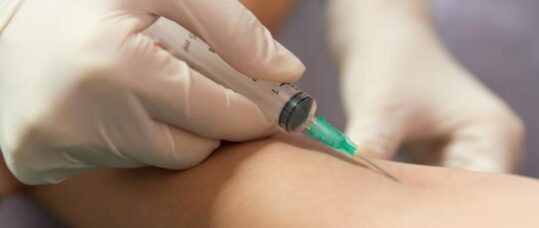Offer all new patients HIV tests in high prevalence areas, says NICE

Patients in areas of high prevalence should be offered a test for HIV by their practice when registering, according to new NICE advice.
All young people and adults should be offered an HIV test by their practice when registering for the first time in an area of high HIV prevalence, or when having a blood test if they haven’t had an HIV test in the last year, NICE has recommend in a new quality standard.
Related Article: New digital support for community nurses in 10-year plan
The quality standard sets out key areas for healthcare professionals to address in order to increase test uptake and improve outcomes for patients.
The standard recommends that testing should be offered to all newly registered patients in areas with a high or extremely high HIV prevalence, defined as between 2-5 or five or more diagnoses per 1,000 people aged 15-59 years.
Related Article: Nurse had to ‘freeze’ PPE during pandemic to re-use in care home, Covid inquiry hears
The standard also says that patients in at-risk groups who test negative for HIV should be advised that the test should be repeated annually. Patients with an HIV indicator condition such as hepatitis B or C, unexplained lymphadenopathy or herpes zoster should also be offered testing.
Professor Gillian Leng, deputy chief executive and director of health and social care at NICE, said: ‘There can be stigma and fear around having an HIV test. This needs to change so that HIV testing is seen as routine practice. This new quality standard sets out clear, practical steps to help encourage and increase the uptake of HIV testing.’
The quality standard comes as a study in the Lancet HIV found that routine testing in areas of high HIV prevalence is cost effective at thresholds set by NICE and to increase diagnosis rate.
Related Article: Tell us what practice nursing means to you and potentially win £1,000
| Quality standard in full |
|---|
|
|
|
|
|
Source: NICE (https://www.nice.org.uk/guidance/qs157)

See how our symptom tool can help you make better sense of patient presentations
Click here to search a symptom


Patients in areas of high prevalence should be offered a test for HIV by their practice when registering, according to new NICE advice.



